SUMMARY
This is AI generated summarization, which may have errors. For context, always refer to the full article.
![[Vantage Point] Sugar mess gets messier](https://www.rappler.com/tachyon/2023/03/sugar-smuggling-march-21-2023.jpg)
First of 2 parts
Brazen, audacious, shameless. There is an endless list of adjectives and synonyms you can choose from to describe the number of people in government who disregard long-standing procurement protocols, often maneuvering outside the purview of the law, just to serve their vested interests.
Despite Senator Risa Hontiveros’ accusation that the recent sugar importation smacks of “government-sponsored [sugar] smuggling,” the government, through Senior Agriculture Undersecretary Domingo Panganiban, issued a memorandum greenlighting the uploading of some 440,000 metric tons (MT) of imported refined sugar to the local market.
Panganiban says that the Sugar Regulatory Administration (SRA) has issued a clarification that the volume of sugar authorized by the undersecretary in January – a month before the sugar order was finalized – will now fall under Sugar Order No. 6. (SO6).
To recall, the Bureau of Customs’ (BOC’s) Intelligence Group flagged on February 17 the irregular entry from Thailand of 250 MT of refined sugar consigned to All Asian Countertrade Inc. Jose Mari C. Rongavilla, chief of the Batangas Customs Field Station, requested for the necessary SRA clearance for the importation, but received none. The importation was later found to be part of the 440,000 MT that entered the country much ahead of the effectivity of SO6.
Panganiban in various media announcements claims that President Ferdinand Marcos Jr. – who interestingly enough did not sign SO6 but remains curiously silent on the issue – approved of his recent memorandum, which he says, would help lower the retail price of sugar to P80-P85 per kilo in weeks’ time. With the memo, the imported sugar has been cleared for transport from ports to warehouses of three handpicked importers: Sucden Philippines Inc., Edison Lee Marketing Corp., and All Asian Countertrade Inc.
What I find strange, however, is that the SRA clearance which Panganiban based his memo on was signed only by SRA administrator David Thaddeus Alba. Also cited in the clearance, but without their signatures, are Pablo Luis S. Azcona and Maria Mitzi V. Mangwag who represent planters and millers, respectively, in the SRA board.

Rappler tried but did not get any response from these two stakeholders’ representatives. Although Vantage Point doesn’t want this piece to be about the importance of permits and signatures in legal or government documents, it should be pointed out that the whole government machinery should not run on verbal commands.
Signatures signify accountability. You cannot go to a bank for a loan without signing tons of documents. In most instances, you have to redo your signature if it doesn’t match what’s in your government-issued identification cards. The same procedure applies to any business or personal transactions. Signatures matter!
We wouldn’t know until the president and these two SRA board members speak about their reasons for not signing the clearance. Could it be that they’re aware that agricultural smuggling is economic sabotage which could send them behind bars?
I couldn’t stress enough the absence of the President’s signature on EO6. At the very end of the document, it clearly says: Approved By: H.E. Ferdinand R. Marcos, Jr., Secretary of Agriculture. The document was signed only by Panganiban, Alba, Mangwang, and Azcona.

According to Hontiveros, SO6 – which allowed the importation – became effective on February 18, three days after it was received by the UP Law Center. She explained that applications could then be received between February 19 and 23, and awards released five days after the last day of submission. This led her to file Resolution No. 497, which calls on the committee on public accountability and investigations to probe the arrival of sugar shipments ahead of SO6 and any “possible provisions in SO6 that may be open to abuse, patronage and cartelization.” Up to this time, the Senate hasn’t acted on her resolution.
Without the President’s signature, is EO6 binding? Is the nodding of his head or verbal signal enough to give life to the order ? Has he greenlighted Panganiban’s memo (unsigned by the two SRA board members) which clears the distribution of the imported sugar? This is what Panganiban has been claiming all along – that the President is well aware of what’s going on. Again, the President has kept his peace for unknown reasons.
Smoking gun
“We should not ignore this ‘smoking gun’ proof of government-sponsored sugar smuggling being coordinated at the highest levels of bureaucracy,” Hontiveros says in a statement.
Former SRA administrator Rafael Coscolluela believes that Panganiban’s move was irregular. “You cannot help but question the possibility of a secret deal made with those three traders,” he said. “There’s a possibility that a case of violation of RA 3019 can be brought against Usec Panganiban because he granted undue benefits to only a few favored traders.”
I’m tempted to say that this episode is a reflection of how this present administration is being run. There is obviously the question of legality in this whole mess and it definitely sets an ugly precedent. It now begs asking: Should oil tanker MT Princess Empress, which sank off the coast of Oriental Mindoro with 800,000 liters of industrial fuel oil on February 28, be allowed to present a belated permit to operate? It had no updated permit when tragedy struck.
In my opinion, this incident should be brought to the appropriate courts for proper adjudication. Former agriculture secretary and Federation of Free Farmers (FFF) board chair Leonardo Montemayor believes so, as he encourages sugar farmers to file a case.
Senate Minority Leader Aquilino “Koko” Pimentel III also insists that the clearance Panganiban and the SRA belatedly issued could not justify the unauthorized entry of the sugar shipment from Thailand. He points out that sugar is regarded as a “highly regulated commodity” that necessitated the establishment of the SRA as a regulatory agency in 1986.
Blatantly disregarding regulations and procedures instituted to safeguard the Philippine sugar industry harms the people they are supposed to protect and erodes the public’s confidence in our government. Let’s not allow sugar smuggling to be par for the course and the continued decline of the industry become a pathetic footnote in our country’s history.
Structural problem root cause of industry’s decline
A friend, an international agricultural expert, says that the Philippine sugar industry will remain besieged by these problems unless the government exercises political will to zero in on solving structural problems which have afflicted the industry for so long.
Here’s his take:
- “Select agricultural sectors are protected by tariffs. If the tariff is in place, then there is no need for quotas, as the tariff carries the burden to protect the sector. Imports should be open to all and any importing business entities.
- Under the ASEAN Free Trade Agreement, quotas must be abandoned once a commodity has had a tariff applied.
- If the government determines that quotas are essential, then these should be auctioned off in a transparent on-line auction to ensure transparency and generate a revenue for the government, [although] the retention of quotas is highly undesirable and may be illegal as per the ASEAN agreement.
- The revenues from collected tariffs should be directed to well-designed industry adjustment schemes, with the clear intention of reaching a tariff of 0% in 10 years. (How can the Philippines ever become an agricultural powerhouse exporting food if the production industries are protected by tariffs?)” (To be continued) – Rappler.com
Val A. Villanueva is a veteran business journalist. He was a former business editor of the Philippine Star and the Gokongwei-owned Manila Times. For comments, suggestions email him at mvala.v@gmail.com.
Add a comment
How does this make you feel?


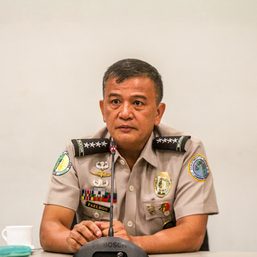

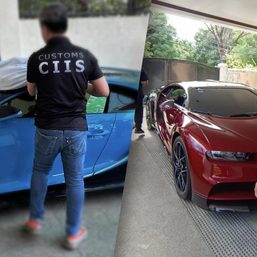
![[In This Economy] Marcos’ POGO ban is popular, but will it work?](https://www.rappler.com/tachyon/2024/07/thought-leaders-marcos-pogo-ban.jpg?resize=257%2C257&crop=255px%2C0px%2C720px%2C720px)
![[Rappler Investigates] POGOs no-go as Typhoon Carina exits](https://www.rappler.com/tachyon/2024/07/newsletter-graphics-carina-pogo.jpg?resize=257%2C257&crop=424px%2C0px%2C1080px%2C1080px)



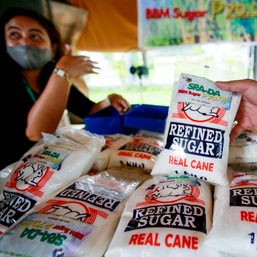
![[Vantage Point] Sugar mess gets messier (Part 2)](https://www.rappler.com/tachyon/2023/04/Sugar-mess-April-1-2023-f.jpg?resize=257%2C257&crop=304px%2C0px%2C720px%2C720px)
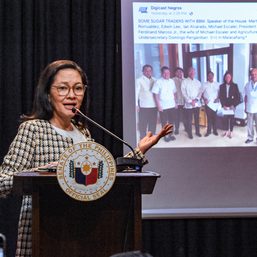
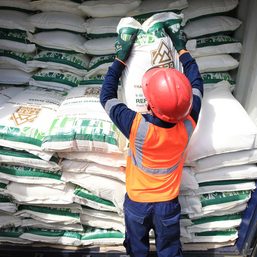
![[EDITORIAL] Apat na taon na lang Ginoong Marcos, ‘di na puwede ang papetiks-petiks](https://www.rappler.com/tachyon/2024/07/animated-bongbong-marcos-2024-sona-day-carousel.jpg?resize=257%2C257&crop=280px%2C0px%2C720px%2C720px)
![[In This Economy] Delulunomics: Kailan magiging upper-middle income country ang Pilipinas?](https://www.rappler.com/tachyon/2024/07/in-this-economy-upper-middle-income-country.jpg?resize=257%2C257&crop=421px%2C0px%2C1080px%2C1080px)

![[EDITORIAL] Marcos Year 2: Hilong-talilong](https://www.rappler.com/tachyon/2024/07/animated-bongbong-marcos-2nd-sona-carousel.jpg?resize=257%2C257&crop=136px%2C0px%2C720px%2C720px)
![[Newspoint] A fighting presence](https://www.rappler.com/tachyon/2024/07/thought-leaders-a-fighting-presence.jpg?resize=257%2C257&crop=441px%2C0px%2C1080px%2C1080px)

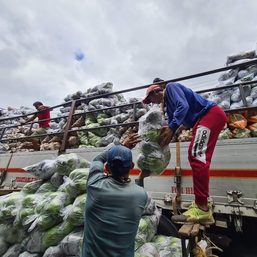
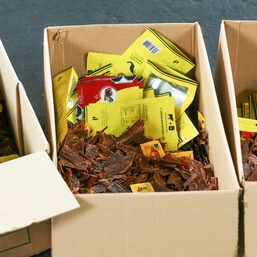
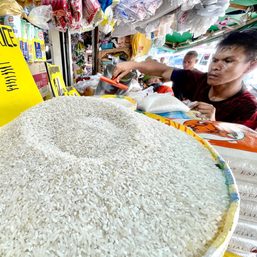
There are no comments yet. Add your comment to start the conversation.